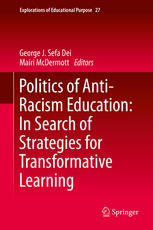

Most ebook files are in PDF format, so you can easily read them using various software such as Foxit Reader or directly on the Google Chrome browser.
Some ebook files are released by publishers in other formats such as .awz, .mobi, .epub, .fb2, etc. You may need to install specific software to read these formats on mobile/PC, such as Calibre.
Please read the tutorial at this link: https://ebookbell.com/faq
We offer FREE conversion to the popular formats you request; however, this may take some time. Therefore, right after payment, please email us, and we will try to provide the service as quickly as possible.
For some exceptional file formats or broken links (if any), please refrain from opening any disputes. Instead, email us first, and we will try to assist within a maximum of 6 hours.
EbookBell Team

4.1
30 reviewsThis collection of essays invites readers to think through critical questions concerning anti-racism education, such as: How does anti-racism education centre race as an analytic and simultaneously work with multiple sites of oppression, without reifying hierarchies of difference? How can anti-racism education be engaged to speak to historical questions of power and privilege, within conventional schooling practices? How do we recognize anti-racism education in its many iterations?
In this book the authors explore the knowledge that constitutes anti-racism education and the ways in which knowledge constitutive of anti-racism education becomes embodied through particular pedagogues. The authors are anti-racism educators with experiences in diverse settings: the chapters cover various fields and socio-historic geographies, address contemporary educational issues, and are situated within personal-political, historical and philosophical conversations.
Anti-racism education is a discursive stance and steeped in politics that shape and are shaped by everyday conversations, theories, and practices. The essays in this collection work through many of the possibilities and limitations of engaging in counter-hegemonic education for transformative learning. Readers will discover lived experiences, theory, practice and critical reflexivity.